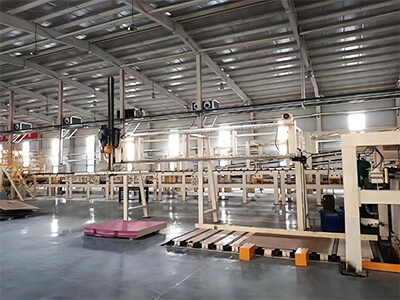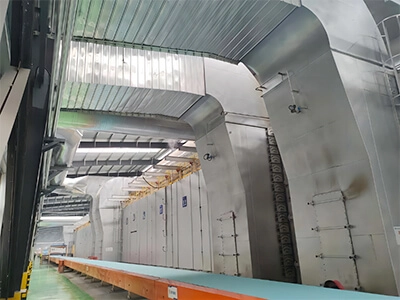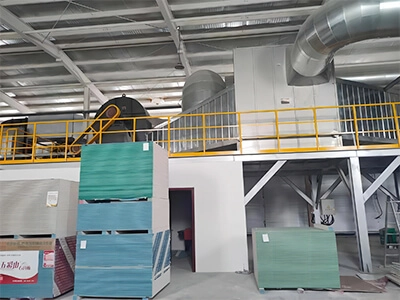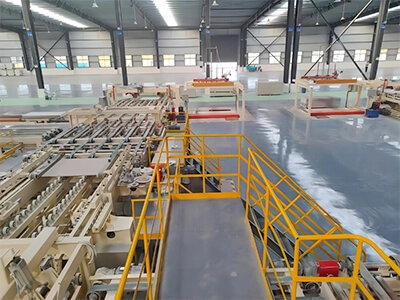
Gypsum Board Machine Factory

Paper Faced Gypsum Board Machinery

Produce Gypsum Board

Paper Faced Gypsum Board Production Line
Raymond mill: also known as R-type mill, high equipment efficiency, low power consumption, small footprint, uniform fineness of finished products, sifting rate of up to 99%, using closed gear box and belt wheel, smooth transmission, reliable operation, feed particle size does not exceed 30mm, fineness of finished products is about 80-325 mesh.
Detailed explanation of Plaster grinding process flow
Step 1: Large stones turn into small stones
The large Plaster raw materials need to be first crushed by a jaw crusher until they can reach the feed fineness of the grinding machine.
Step 2: Turn small stones into stone powder
Plaster that meets the requirements for grinding fineness is sent to the Plaster particle silo by a lift machine, and then continuously and evenly fed into the grinding chamber of the Raymond mill for grinding processing by a vibrating feeder.
Step 3: Stone powder grading
The ground Plaster powder is graded by a powder selection machine, and unqualified Plaster powder will be re fed into the Raymond mill for secondary grinding.
Step 4: Calcination of stone powder
The Plaster powder with the required fineness will be sent to the fluidized bed furnace for calcination treatment. After calcination, the Plaster powder can be sent to the storage bin to complete the grinding operation of Plaster.